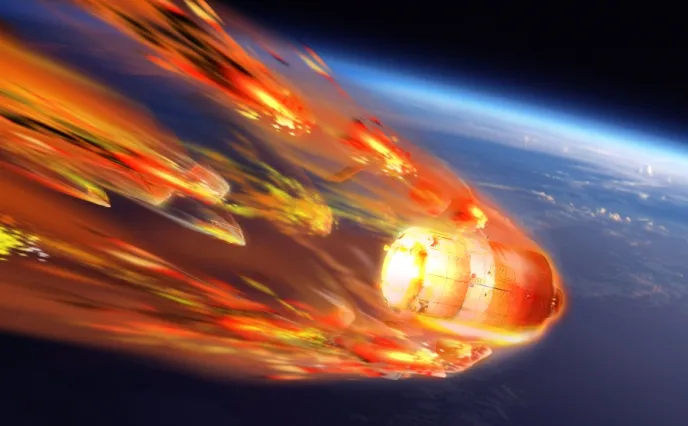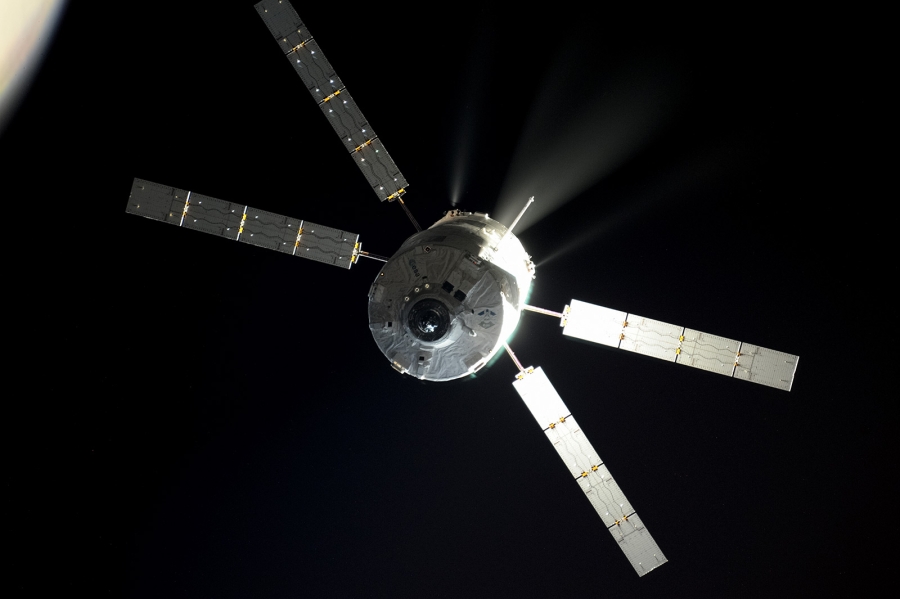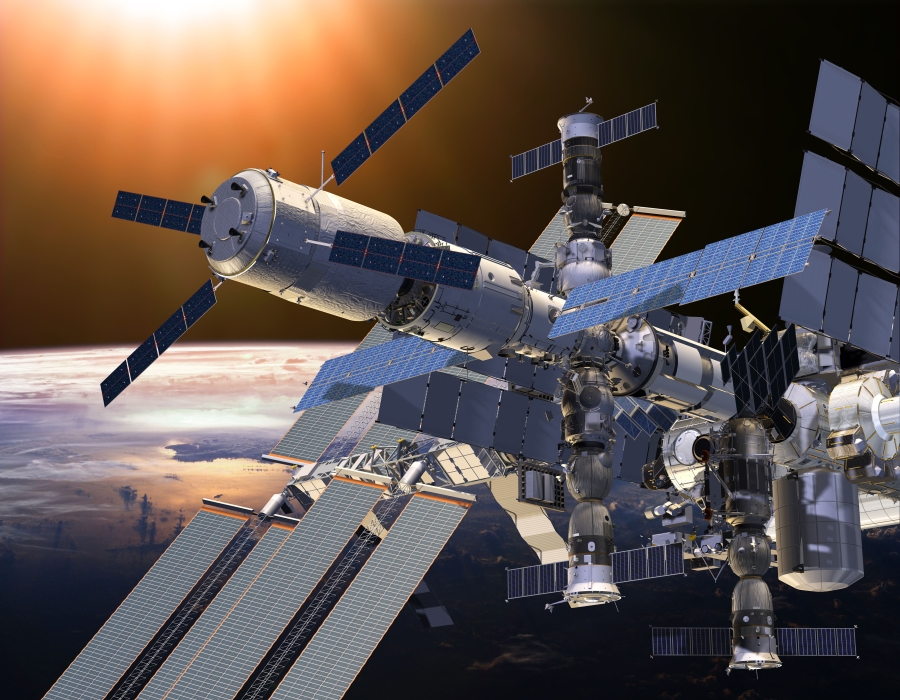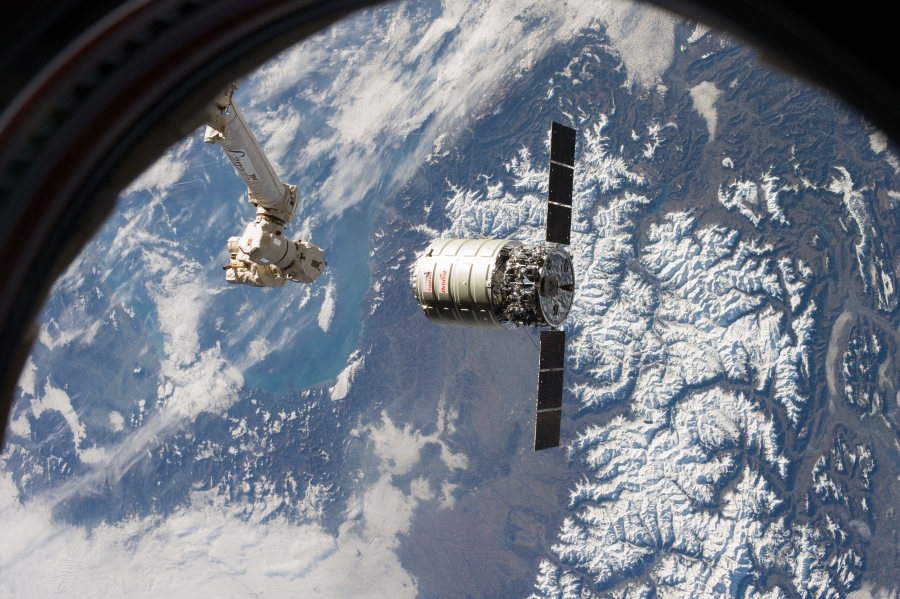ATV-5 bows out!

The fifth ATV (Automated Transfer Vehicle) separated from the International Space Station on February 14, signaling the end of the European Space Agency's ATV program. ATV-5, nicknamed Georges Lemaître in honor of the Belgian physicist, father of the Big Bang theory, undocked from the Space Station on Saturday, February 14 at 13:40 UTC, then plunged back into the atmosphere the following day, burning up with waste offloaded from the ISS.
ATV-5: mission feedback

Launched by Arianespace in July 2014 from the Guiana Space Center, Europe's Spaceport in French Guiana, the ATV-5 rendezvoused automatically with the ISS, bringing it experimental equipment, spare parts, food, oxygen and water for the crew. It carried a total of 2.7 metric tons of cargo, along with 2.1 metric tons of propellant to maintain the Space Station in its nominal orbit, and 860 kg of propellants for the propulsion system on the Russian service module, as well as 850 kg of water and 100 kg of oxygen.
Thales Alenia Space, a lead role on the ATV

Thales Alenia Space was a major partner in this large-scale European program, as supplier of the pressurized Integrated Cargo Carriers (ICC) for all five ATVs, which were named, starting with the first: Jules Verne (writer), Johannes Kepler (astronomer) Edoardo Amaldi (Italian space pioneer), Albert Einstein (physicist who developed the theory of relativity) and Georges Lemaître. Over the course of its five resupply missions to the International Space Station, Europe's ATV – and especially the ICC from Thales Alenia Space – carried some 31.5 metric tons of cargo to the International Space Station, including propellants, oxygen and water.
From orbital infrastructures to tomorrow's space transport systems

Thales Alenia Space has built fully 50% of the pressurized volume on the International Space Station, including the Node 2 and 3, MPLM, Columbus, Cupola and PMM modules, along with the pressurized service modules on all five ATVs. It also won the contract from NASA to provide nine pressurized cargo modules for Cygnus spacecraft. Building on this unique expertise, Thales Alenia Space will also be a leading contributor to the Orion Multi-Purpose Crew Vehicle (MPCV) being developed by NASA, to be used for exploration missions beyond low Earth orbit.


